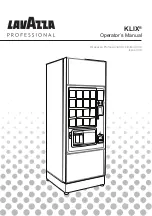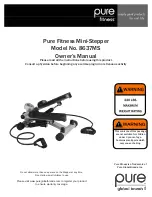Reviews:
No comments
Related manuals for 1600P PROFESSIONAL -

TOYBOX
Brand: UNIS Pages: 19

Sparrow
Brand: Daedalus Pages: 20

F5
Brand: Jack Pages: 8

F5
Brand: Jack Pages: 10

JK-797
Brand: Jack Pages: 74

KH 4419 THERMAL BINDING MACHINE
Brand: UNITED OFFICE Pages: 14

KLIX Series
Brand: LAVAZZA Pages: 32

8637MS
Brand: Pure Fitness Pages: 12

LS10 Series
Brand: ASTRO Pages: 50

WAYFARER 6
Brand: Parkeon Pages: 127

743-420
Brand: Duerkopp Adler Pages: 84

In-Sight 9902L
Brand: Cognex Pages: 31

PF-55
Brand: Neopost Pages: 11

APW-896N/IP-420
Brand: JUKI Pages: 142

AMS-221F3020RSW/AW-3
Brand: JUKI Pages: 163

MS-202
Brand: DS Produkte Pages: 68

GBC Ricoh StreamPunch Ultra
Brand: ACCO Brands Pages: 11

AMS-210EN-7450
Brand: JUKI Pages: 80

















